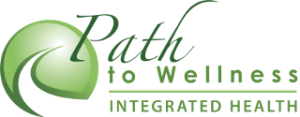What Is High-Dose Vitamin C?
Vitamin C (also called L-ascorbic acid or ascorbate) is a nutrient that humans must get from food or dietary supplements since it cannot be made in the body. Vitamin C is an antioxidant and helps prevent oxidative stress. It also works with enzymes to play a key role in making collagen.
When taken by intravenous (IV) infusion, vitamin C can reach much higher levels in the blood than when it is taken by mouth. Studies suggest that these higher levels of vitamin C may cause the death of cancer cells in the laboratory.
A severe deficiency (lack) of vitamin C in the diet causes scurvy, a disease with symptoms of extreme weakness, lethargy, easy bruising, and bleeding. The lack of vitamin C in patients with scurvy makes collagen thinner in texture; when vitamin C is given, collagen becomes thicker again.
Vitamin C Benefits
- Vitamin C is a nutrient found in food and dietary supplements. It is an antioxidant and plays a key role in making collagen.
- High-dose vitamin C may be given by intravenous (IV) infusion (through a vein into the bloodstream) or orally (taken by mouth). When taken by intravenous infusion, vitamin C can reach much higher levels in the blood than when the same amount is taken by mouth.
- High-dose vitamin C has been studied as a treatment for patients with cancer since the 1970s.
- Laboratory studies have shown that high doses of vitamin C may slow the growth and spread of prostate, pancreatic, liver, colon, and other types of cancer cells.
- Some laboratory and animal studies have shown that combining vitamin C with anticancer therapies may be helpful, while other studies have shown that certain forms of vitamin C may make chemotherapy less effective.
- Animal studies have shown that high-dose vitamin C treatment blocks tumor growth in certain models of pancreatic, liver, prostate, and ovarian cancers, sarcoma, and malignant mesothelioma.
- Some human studies of high-dose IV vitamin C in patients with cancer have shown improved quality of life, as well as improvements in physical, mental, and emotional functions, symptoms of fatigue, nausea and vomiting, pain, and appetite loss.
- Intravenous high-dose ascorbic acid has caused very few side effects in clinical trials.
High-Dose Vitamin C Benefits
- Vitamin C is a nutrient found in food and dietary supplements. It is an antioxidant and also plays a key role in making collagen.
- High-dose vitamin C may be given by intravenous (IV) infusion (through a vein into the bloodstream) or orally (taken by mouth). When taken by intravenous infusion, vitamin C can reach much higher levels in the blood than when the same amount is taken by mouth.
- High-dose vitamin C has been studied as a treatment for patients with cancer since the 1970s.
- Laboratory studies have shown that high doses of vitamin C may slow the growth and spread of prostate, pancreatic, liver, colon, and other types of cancer cells.
- Some laboratory and animal studies have shown that combining vitamin C with anticancer therapies may be helpful, while other studies have shown that certain forms of vitamin C may make chemotherapy less effective.
- Animal studies have shown that high-dose vitamin C treatment blocks tumor growth in certain models of pancreatic, liver, prostate, and ovarian cancers, sarcoma, and malignant mesothelioma.
- Some human studies of high-dose IV vitamin C in patients with cancer have shown improved quality of life, as well as improvements in physical, mental, and emotional functions, symptoms of fatigue, nausea and vomiting, pain, and appetite loss.
- Intravenous high-dose ascorbic acid has caused very few side effects in clinical trials.
- While generally approved as a dietary supplement, the U.S. Food and Drug Administration (FDA) has not approved the use of IV high-dose vitamin C as a treatment for cancer or any other medical condition.
What Is High-Dose Vitamin C?
Vitamin C (also called L-ascorbic acid or ascorbate) is a nutrient that humans must get from food or dietary supplements since it cannot be made in the body. Vitamin C is an antioxidant and helps prevent oxidative stress. It also works with enzymes to play a key role in making collagen.
When taken by intravenous (IV) infusion, vitamin C can reach much higher levels in the blood than when it is taken by mouth. Studies suggest that these higher levels of vitamin C may cause the death of cancer cells in the laboratory.
A severe deficiency (lack) of vitamin C in the diet causes scurvy, a disease with symptoms of extreme weakness, lethargy, easy bruising, and bleeding. The lack of vitamin C in patients with scurvy makes collagen thinner in texture; when vitamin C is given, collagen becomes thicker again.
How Does High-Dose Vitamin C Help Treat Cancer?
High-dose vitamin C has been studied as a treatment for patients with cancer since the 1970s. A Scottish surgeon named Ewan Cameron worked with Nobel Prize-winning chemist Linus Pauling to study the possible benefits of vitamin C therapy in clinical trials of cancer patients in the late 1970s and early 1980’s.
Surveys of healthcare practitioners at United States CAM conferences in recent years have shown that high-dose IV vitamin C is frequently given to patients as a treatment for infections, fatigue, and cancers, including breast cancer.
More than fifty years ago, a study suggested that cancer was a disease of changes in connective tissue caused by a lack of vitamin C. In the 1970’s, it was proposed that high-dose ascorbic acid could help build resistance to disease or infection and possibly treat cancer.
SOURCE: NIH. High-Dose Vitamin C
